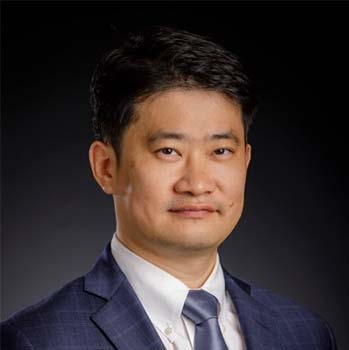In this seminar, recent progress in CMOS THz electronics for high-resolution reflection-mode active imaging will be presented. To realize camera-like reflection-mode active imaging, transmitter and receiver functions should be integrated into a compact pixel that can eventually form large-scale 2-dimensional arrays. Dr. Choi demonstrated that it is possible to integrate transceiver functions including a shared on-chip antenna into a pixel with a compact area close to half wavelength squared at ~260 GHz using a 65-nm Si CMOS technology. The pixel employs an injection-locked oscillator that doubles as a transmitter and an LO, performing 10-dB better sensitivity compared to receiver-only pixels. The transceiver pixel concept is also realized in a pixel and an array at ~420 GHz. By combining the 420-GHz array with a 6-cm Cassegrain reflector, imaging at 3 m with 0.3-degree angular resolution is demonstrated.

Wooyeol Choi is an Assistant Professor in the School of Electrical and Computer Engineering at Oklahoma State University, Stillwater, OK. His research is focused on the design and characterization of high-frequency integrated circuits and systems for RF-to-THz applications.
He earned the B. S. degree in Electronic Engineering from Yonsei University, Seoul, Korea, the M. S. and the Ph. D. degrees in Electrical Engineering from Seoul National University, Seoul, Korea.
From 2011 to 2018, he was with the Texas Analog Center of Excellence (TxACE) at the University of Texas at Dallas (UTD), Richardson, Texas, USA, first as a Research Associate later as an Assistant Research Professor. At UTD, he participated in multiple research projects including time-domain harmonic-load-pull system development and the demonstration of the first CMOS-based THz rotational spectroscopy as PI and Co-PI.
In 2018, Dr. Choi joined Oklahoma State University as an Assistant Professor. At Oklahoma State, he is serving as a founding co-director of TWISTER research group and Oklahoma CubeSat Initiative and leading multiple research projects on millimeter-wave and terahertz electronics for communication, imaging, and sensing.
Dr. Choi is a Senior Member of IEEE.